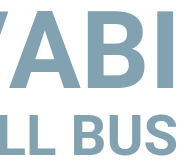A Few Lessons Entrepreneurs and Small Business Owners Can Learn from the iAnthus Debacle
Startup companies eager to accelerate their growth sometimes face tough options—and succumb to questionable decision-making–when it comes to raising capital, and iAnthus, one of early leaders in the booming legal cannabis industry, is the latest example of how quickly and dramatically things can go wrong when a company enters into a risky financing deal. Decision-making by company leaders at pivotal moments is now being scrutinized as being allegedly fraudulent and constituting a breach of fiduciary duty to the company’s shareholders, who are in danger of having the value of their investments wiped out.
Read the full article published by Politico for all the details. A few key takeaway lessons for entrepreneurs and small business startups in search of capital include:
- There are different ways to finance company growth. Be sure to do your due diligence, work with professional advisors (legal, financial, accounting), and carefully assess the pros and cons of different financing strategies to position yourself to make an informed decision as to the best available option for your company.
- Understand the “golden rule” of debt financing—she who has the gold (i.e., the money), makes the rules. In other words, if you are borrowing a significant some of money from a third-party lender, private equity firm, or institutional investor, expect the terms to be one-sided, inflexible, and unforgiving. In a capitalist, freedom-of-contract market, you should expect that—absent fraud—a court of law will hold you to the terms of a deal you voluntarily agreed to, however one-sided or reckless that deal might prove to be in hindsight.
- Get it in writing. If a business term or deal point is important to you, be sure it is memorialized in the actual contract. Rely on verbal assurances (e.g., “We would never enforce that.” “I know the provision in the agreement says you can’t do this, but we can work around that if it ever becomes an issue,”) at your own risk.





Leave a Reply
Want to join the discussion?Feel free to contribute!